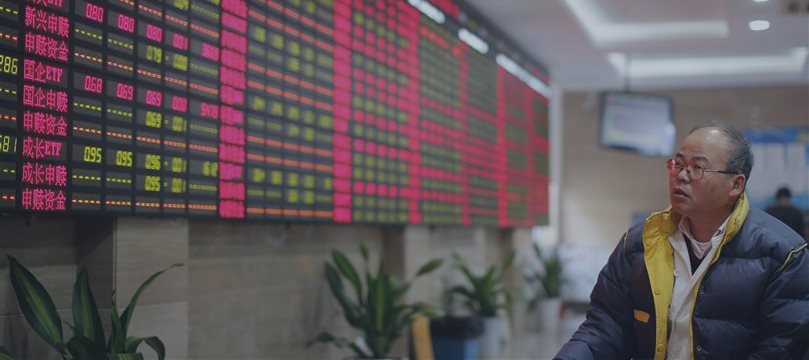A drop in China's previously booming stock markets has been a massive headache for President Xi Jinping and the country's top officials, who are already facing a slowdown in the world's second largest economy.
On Thursday the Shanghai Composite added 5.8% to 3709.33, after losses in eight of the
last 10 trading days. The smaller Shenzhen market climbed 3.8%. Still,
both indexes have lost around a third of their value in the past month.
The small-cap ChiNext board, which has dropped some 38% from its June highs, rose 3%.
Some companies that had halted trading of their shares lifted suspensions, and their stock prices immediately rose by the maximum 10%. These include Hangzhou Iron & Steel Co., Zhejiang Huahai Pharmaceutical Co. and Leshi Internet Information and Technology Corp. Beijing. A total of 1,473 companies, or 51.1% of all stocks on the Shanghai and Shenzhen markets, remain suspended.
Stocks in Hong Kong, which suffered their worst trading session since the global financial crisis on Wednesday, closed up 3.7%, the biggest one-day gain for the index in three months. A gauge of Hong Kong-listed Chinese companies , known as H-shares, advanced 3.1%.
The government responded to the drop with an avalanche of reforms which included an interest rate cut, suspension of initial public offerings and enlisting brokerages to buy stocks, underpinned by cash from the central bank.
State-run Xinhua News Agency earlier reported that Chinese police had visited the China
Securities Regulatory Commission to investigate “malicious short
selling,” a move broadly interpreted as another stab at arresting the
selloff.
The China Securities Regulatory Commission (CSRC) said on its website late on Wednesday that holders of more than 5 percent of a firm's stock would be banned from selling for the next six months.
The prohibition will hardly have have much impact on foreign investors, Reuters reports. No Qualified Foreign Institutional Investor (QFII), one of the main channels of foreign investment in China, holds more than 5 percent of a Shanghai or Shenzhen listed company. Foreign investors with more than a 5 percent stake in Chinese firms are all strategic investors.
A number of economists believes that more regulatory action will be needed in the coming days, as investors seeking to reduce their risk exposure rush to the exit on the back of any bounce.
"This high level of intervention comes at a significant cost. Such intervention locks up ownership of shares, reduces liquidity and creates an overhang that could plague the market for years," said Mark Konyn, chief executive officer at Cathay Conning Asset Management Ltd in Hong Kong.
"It is concerning that the Chinese government doesn't allow market forces to work, and that's something China must change over time," commented Christopher Moltke-Leth, head of institutional client trading at Saxo Capital Markets.
Meanwhile, China’s domestic bonds stabilized following Wednesday’s selloff, with the benchmark 10-year central government bond yield falling 0.05 percentage points to 3.435%. Yields fall when prices rise.



